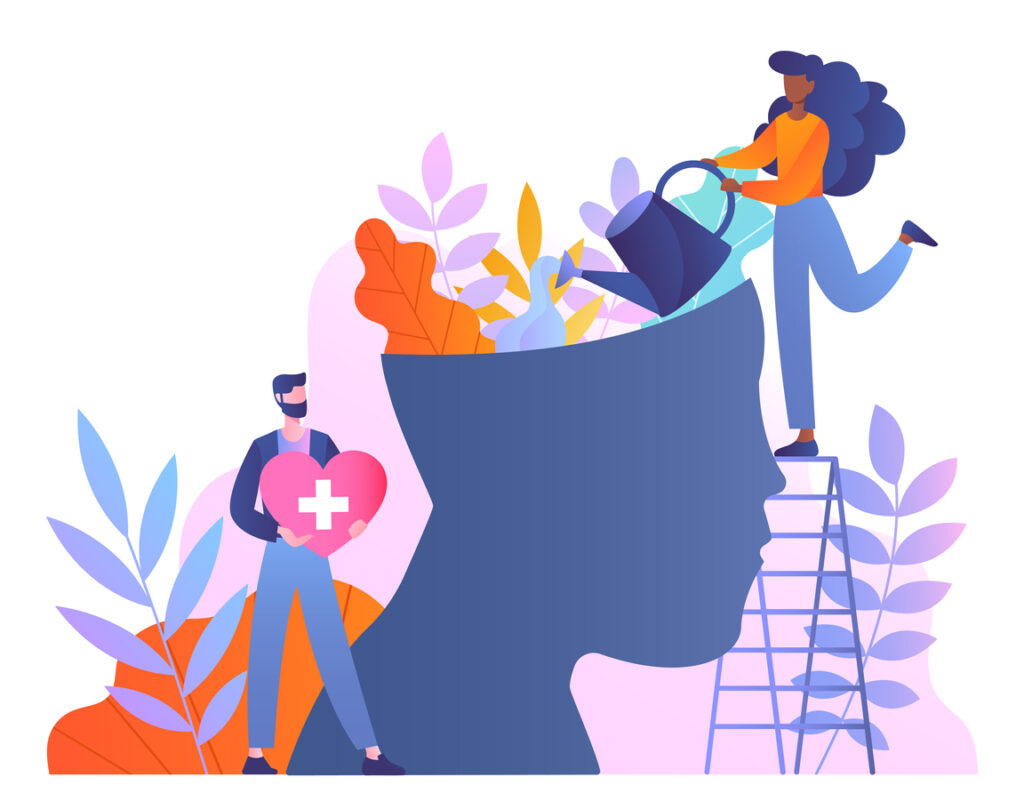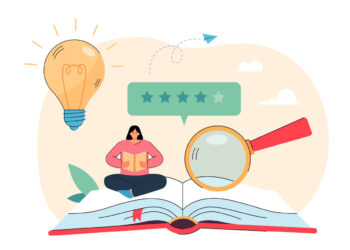Editor’s Note: Today’s post is by Juanita Goossens-Roach. Juanita has been in peer review management for nearly 20 years, initially as an Editorial Assistant and currently as Peer Review Group Manager, in Editorial Operations at Cambridge University Press, she manages inter-relations three units in the Peer Review Group: recognizing OPRS (online peer review systems) and PRA (peer review administration) challenges and proactively managing demanding project work driving improvement in responsiveness and service, how these units intersect and interact, as well as third unit of external administrators providing comparable administrative and peer review management.
We all have work personas, usually with the aim of having them be similar to who we are in our lives outside of work. But with all the intricacies of intersectionality – gender, ethnicity, disability, neurodivergency, mental health, and other identifiers – how can we be true to our whole self while also being authentic as our work-selves in our day-to-day roles? And why should it matter without being self-gratuitous, tokenistic, or patronizing?
What Does Intersectionality Mean to Me?
For me, I am a physically disabled, neurodiverse woman of color with mental health issues. I have anxiety, clinical depression, and post-traumatic stress disorder. I am a wife and mother, and a publishing professional — not necessarily in that order!
As intersectional as I am, I am not special; but, like anyone else, I am unique, with a lived life. I continue to work and expand my career in the publishing industry, more pertinent as a woman and a mother, since having a career and a child do not always go hand in hand or work together for us.
I had the luxury, if you like, of diagnoses in my late teens (for my mental health issues) and early twenties (for my physical disabilities). Now in my mid-forties, I have over twenty years of adapting and learning, researching techniques that help, using what resources are available, taking advantage of adjustments, and discovering what works for me. However, living my best life is and continues to be a constant journey.
For people with disabilities and neurodivergencies, being your whole self can often be more easily addressed than other intersectional identities. Physical and mental comfort can be maximized (as much as possible) through minor, or in some cases major, adjustments to ensure work is as comfortable as possible. This could be in regard to physical location. It’s important to consider your desk set-up and additional hardware for accessibility. Technical adjustments such as transcripts, plain-format documents, text-to-speech, or screen-readers should also be considered. But all adjustments need to be reasonable and acceptable for both the individual and the organization.
How Do I Make Work “Work” for Me?
My physical disability is a little hard to explain; it’s more than just “a bad back”. I was diagnosed with Degenerative Disc Disease in 2002 – irreparable spinal and nerve damage causing constant chronic pain, mobility problems (i.e., walking, lacking flexibility otherwise considered “normal”), both numbness and sensitivity down my right leg, and particularly pain, numbness, and sensitivity in my right foot. This evolved further with foot drop in 2018 – where the function, mobility, and use of my foot worsened, i.e., my foot just dropped and hung, causing much more intense pain (think the painful part of pins and needles but for six months). I was unable to put any weight on my foot as these pins and needles pains intensified with any pressure, but at the same time, I could not feel my foot, making walking almost impossible and even sitting painful. I used a walking stick for three years in 2002 to 2005, and again for another eighteen months from 2018 as I could not walk more than a few steps. Now, following years of physiotherapy, acupuncture, exercise, and physical rehabilitation, I am more mobile, but live with constant chronic pain and mobility issues.
My neurodivergency takes the form of hyperacusis, which makes me sensitive to sounds. I also have difficulty focusing on a number of sounds or conversations at the same time; this means I take some time to process conversations, and often have to ensure I am focused on the conversation at hand, which sometimes adds to my anxiety and also Imposter Syndrome – sometimes asking myself: “if I ask this question or ask for that point to be repeated, will my integrity be impacted?” Or, during virtual or even in-person meetings: “Do I look like I am paying attention?”
These physical and neurodivergent issues can easily be met through minor workplace adjustments, especially when I’m working from home. Even whilst working on-site, as I had done at the start of my career, minor adjustments were made. I sat on a large purple yoga ball and had a raised monitor. Admittedly, pre-pandemic the transition to working from home was harder to actualize, as I had to really make the case for why I needed (not wanted) to work from home.
Working from home now, both during and post-pandemic, I still have minor adjustments in place. I still sit on a (large and still purple) yoga ball with a raised monitor. I take regular breaks – even just to stand. I set boundaries on and at work, but never undermine my role and responsibilities, including the caring responsibilities for my child — though now, at 11 years old, she is more self-sufficient (albeit including a bit too much screen time herself, i.e., video games!).
I am conscious of my posture and my sitting position, and work actively to improve this. Sitting on my yoga ball helps, as having no back to my “chair” does not allow for slouching. The constant movement allows me to micro-adjust my posture, my position, and overall moderate my pain.
All of this is much easier to do working from home, but setting those boundaries that are so important for my physical and mental well-being is something that should be just as important to everyone, whatever their illnesses, issues, disabilities, neurodivergencies, caring responsibilities, or anything else.
What Happens When I Have “Bad Days?”
Like anyone with any disability, neurodivergency, or mental health issues more broadly – as all can interlink and intersect – how an individual manages their own needs is critical. Usually, this goes beyond what minor or major adjustments have been put into place.
For me, it is about ensuring each day is as good as the last or the next.
I know my abilities and my limitations. I set clear boundaries; they require self-discipline to adhere to, I know that by sticking to them as best as I can, I will reap the rewards. My goal is to ensure I am as comfortable as possible, physically and mentally, with my workload; all to ensure job satisfaction by bringing my whole self to work.
But the importance of being comfortable for work extends beyond my working hours. Being self-disciplined has such a huge impact on my non-working hours – my “life”. I set boundaries to block the pain, stressors, and discomfort from work from carrying over into my life. Free time – evenings and weekends – are short compared to working hours (not including time asleep!). By ensuring I am as comfortable as possible at work (physically, mentally, overall well-being, workload), I carry that comfort through to life. This means hard stops at the end of my working day – not by “downing tools” (as my husband terms it), i.e., stopping mid-email or abruptly leaving a meeting, but by aiming to end my working day within my working hours and by taking regular breaks; and by not working outside of my working hours, i.e., no emails after hours, not even to “tidy things up” before my next working day starts.
But some days, particularly winter months or damp days, affect my pain levels beyond what is “everyday” for me, and I prepare for these as best as I can. Regardless of the weather, I exercise twice a day. First at lunch time, to ensure I am away from my desk physically and mentally, and then again after work to decompress. This might sound extreme, but it ensures my body, with all its problems (pain, mobility, lack of strength), works for me — at work and, more importantly, outside of work.
I have always been active – in my track club in high school, excelling at sprints, long jump, and shot put – so being able to push through the pain and focus on the overall outcome helps me to enjoy life!
Self-Discipline Shouldn’t Have to Be Feared!
I have written a lot about “self-discipline”, which may sound oppressive and controlling, but I find it does not have to be regimental – just consistent.
Consistency, rather than intensity, reaps rewards.
My physical disability is managed through a strict, exercise-heavy regimen – at least that is what I keep telling myself when I am out running. And yes, even with mobility issues and chronic pain, I can run and find doing so, as well as, powerlifting, dancing, swimming, cycling, roller-skating, and basically any cardio exercise to be helpful. The pain is overridden by the endorphin rush, and exercising helps to alleviate it once that endorphin rush has dropped.
It might seem extreme to hold myself to this routine, twice a day during weekdays and at least once a day on the weekends. You might be thinking, “You are disabled, you shouldn’t be doing that”…“You can’t go running”…Or if you see me in the office wearing stylish heels, “You can’t wear those if you have a ‘bad back.’” But I never let anything stop me from doing what I want (and sometimes need) to do. This all helps keep me active, mobile, reduces pain as much as possible, and allows me to enjoy life. I find my physical disability and my mental health are actually exacerbated if I don’t move.
Why Is This Important?
We should not be judged for any intersectional identifiers, particularly disabilities and neurodivergencies, but rather supported. To take away any of those is to take away a part of the person, and thus a modified work persona is developed. Disabilities, neurodivergencies, and mental health issues are all personal and unique – even if you share similar diagnoses with others. I don’t know about you, but I would find it exhausting to “keep track” of different work personas, and we all have enough projects, tasks, and workload without the added strain of juggling work guises.
I am happy to share my mental health issues (I don’t like using the term “struggle” or “mental health illness/concerns,” which imply negativity): anxiety, clinical depression, and post-traumatic stress disorder. These are borne, surprisingly, not from my physical and neurodiverse disabilities, but from a very difficult and very abusive childhood. Mental health issues should not have the stigma that they still have. For myself, I will never “be better”, but I can control and manage my mental health issues rather than letting them control me – something I had previously done for many years – so I am a stronger person, albeit one with mental health issues. Just as I have adapted my physical life (i.e., an exercise-heavy regime) to allow me to live with my physical disability, I have done the same for my mental health. For to take away any of my physical, neurodivergent, or mental health issues is to take away from my authentic self.
That’s All Great, But How Can Disabilities and Neurodivergencies Impact Our Work (But Not Always)? And Without Being Tokenistic, Patronizing, or Self-Gratuitous?
What works for me and many others may not work for everyone, but some things to consider:
- Be authentic or be as open and authentic as you wish, or as circumstances allow.
- Make individual adjustments: minor and major, but reasonable and accepted between you as an individual and your organization.
- Open communication lines. Is there manager/employee training? Are there resources and support, and are they easy to find or at least sign-posted by individuals or groups?
- Set realistic expectations. They should be as two-way and as open as possible and as circumstances allow.
- Be inclusive: this should also extend to hybrid/remote colleagues.
- Focus on well-being:
- Physical comfort: including home/on-site working environment.
- Workload comfort: manageable, practicable, and reasonable within working hours and working energy in those hours.
- Mental comfort: mental health, and mental well-being.
- Resist Imposter Syndrome:
- Try not to compare yourself to others even if they are in a similar role. Their role and yours are different and your journeys will be unique.
- Try not to think of what others think about you – that’s just you projecting, something I stopped doing many years ago.
- Challenge yourself, but also be kind to yourself. Challenge and pressure are good and help us to push further in our careers, but ensure you set workable boundaries, so that pressure doesn’t turn into stress.
There’s No Magic One-Size-Fits-All Solution!
For me, this is all personal: but what affects me affects how I work. The minor adjustments made or boundaries I set to be as comfortable as possible, and as authentic and true to my “non-work self” as possible, can be relatable to anyone.
It can be difficult to not assume that someone is overwhelmed with work when in fact they are merely overloaded with work. We should rather recognize the differences between pressure (which can be good) and stress (which is never good). Providing a safe place (or face) that someone can go to for advice, support, or pointing to helpful resources is essential. I am neither offended nor happy if someone recognizes my discomfort when I am struggling and offers me help – such as giving up a seat on public transport. Similarly, if I need help, I am not afraid to take the initiative. If I have something I need to address, I get the support I need, whether that support comes from myself asking or others offering. Otherwise, keeping the struggle to myself can just amplify the negatives of the situation rather than the actual situation itself, i.e., I am in pain and discomfort (the negative) but I need to work (the situation).
I am not saying every day is an amazingly awesome and trouble (or even pain) free day – for that would be quite boring – and yes, sometimes my physical pain and mobility issues cause more difficulties than the day before, and for no reason whatsoever. But I aim to be as comfortable as each day allows, and more so, as authentic as each day to the next, all so I can live my best life.
Be kind to yourself – we are humans, not emotionless robots (at least not yet!!).
Note: This is a republished version of an article originally published in ISMTE’s Publication EON which can be found here https://eon.pubpub.org/pub/sm3uxhbr/release/1?readingCollection=58aa6313.”
Discussion
2 Thoughts on "Mental Health Awareness Mondays — Being Your Whole Self: Disability and Neurodivergency"
Thank you for sharing your story, Juanita. It’s a powerfully authentic statement of the importance of giving ourselves, and others, the time and attention to be successful. When we don’t give ourselves the grace to make mistakes or feel overwhelmed, it becomes so much harder to do it for others.
Thank you for sharing your journey, Juanita, and for the reminder that the ability to be authentic to ourselves at work – and to manage workloads – always starts with self-care and advocacy. “I find my physical disability and my mental health are actually exacerbated if I don’t move” – nodding along emphatically with this statement as I work through another sports injury underpinned by my chronic condition. It takes so much effort and energy to structure a day around our own needs rather than letting work schedules dictate time to us. Thank you for an exceedingly timely reminder of this, and for the reminder that sharing our stories is empowering for ourselves and for others.


